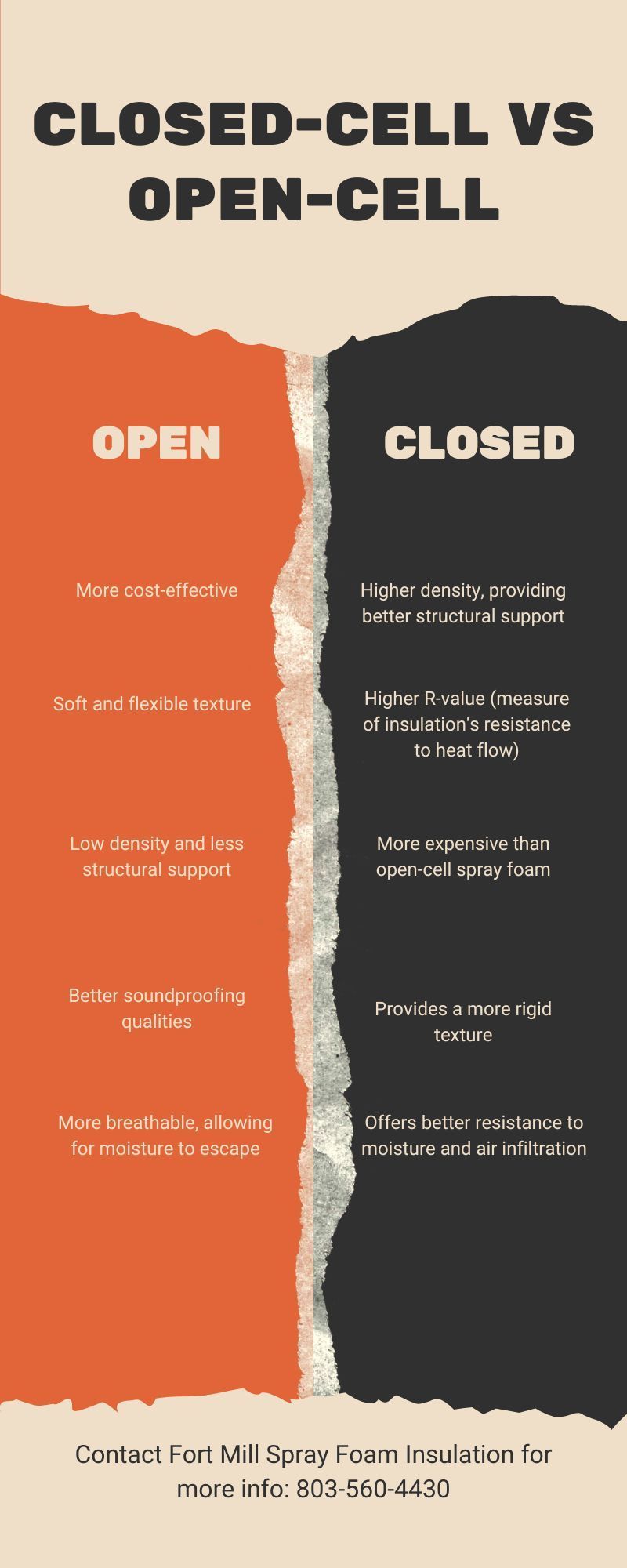Understanding Open Cell and Closed Cell Foams: A Comprehensive Guide
Spray foam insulation is a popular and effective solution for insulation and air sealing of buildings. There are two main types of spray foam insulation: open cell foam and closed cell foam. Each type has its own unique properties and benefits, and it's important to understand the differences between the two in order to make an informed decision about which one is best for your insulation needs.
What is Open Cell Foam?
Open cell foam is a type of spray foam insulation that is made from a mixture of polyurethane and water. It's called "open cell" because the individual cells are not completely closed, which allows for air and moisture to circulate throughout the foam. The result is a soft, spongy texture that provides good insulation but does not have the strength or rigidity of closed cell foam.
Advantages of Open Cell Foam
- Lower cost: Open cell foam is generally less expensive than closed cell foam, making it a popular choice for budget-conscious consumers.
- Good insulation properties: Open cell foam provides good insulation properties and can help lower energy bills by reducing heat loss and air infiltration.
- Easy to install: Open cell foam is lightweight and easy to install, making it a good option for DIY projects or small jobs.
What is Closed Cell Foam?
Closed cell foam is a type of spray foam insulation that is made from a mixture of polyurethane, water, and a blowing agent. The blowing agent creates a closed cell structure, meaning the individual cells are completely sealed, preventing air and moisture from circulating. This results in a dense, rigid foam that provides excellent insulation and structural support.

Advantages of Closed Cell Foam
- High insulation properties: Closed cell foam has a higher insulation value than open cell foam, making it a more effective solution for energy efficiency and air sealing.
- Strong and durable: Closed cell foam is stronger and more durable than open cell foam, making it a good choice for areas that need extra support or protection, such as roofs and walls.
- Resistant to water and mold: Because the individual cells are sealed, closed cell foam is highly resistant to water and mold, making it a good choice for damp or humid environments.
Choosing the Right Foam for Your Project
When choosing between open cell foam and closed cell foam, it's important to consider the specific needs of your project. If cost is a major factor, open cell foam may be the better choice. However, if insulation and structural support are a priority, closed cell foam may be the better option.
Why Choose Fort Mill Spray Foam Insulation
If you're a commercial customer looking for a reliable and experienced spray foam insulation company, look no further than
Fort Mill Spray Foam Insulation. Our team of experts has the knowledge and experience to help you make an informed decision about the best type of foam for your commercial or industrial project. We understand that every building is unique, and we will work with you to determine the best solution to meet your insulation goals. Whether you need help choosing between open-cell foam and closed-cell foam, or you have other insulation needs, our team is here to help. So why wait? Call Fort Mill Spray Foam Insulation today and let us help you achieve your insulation goals!
Book a Service Today
We will get back to you as soon as possible
Please try again later
Give us a call today
Let us help you save hundreds and thousands of dollars on energy costs!
Navigation
Services
Working hours
- Mon - Fri
- -
- Sat - Sun
- Closed
Fort Mill Spray Foam Insulation